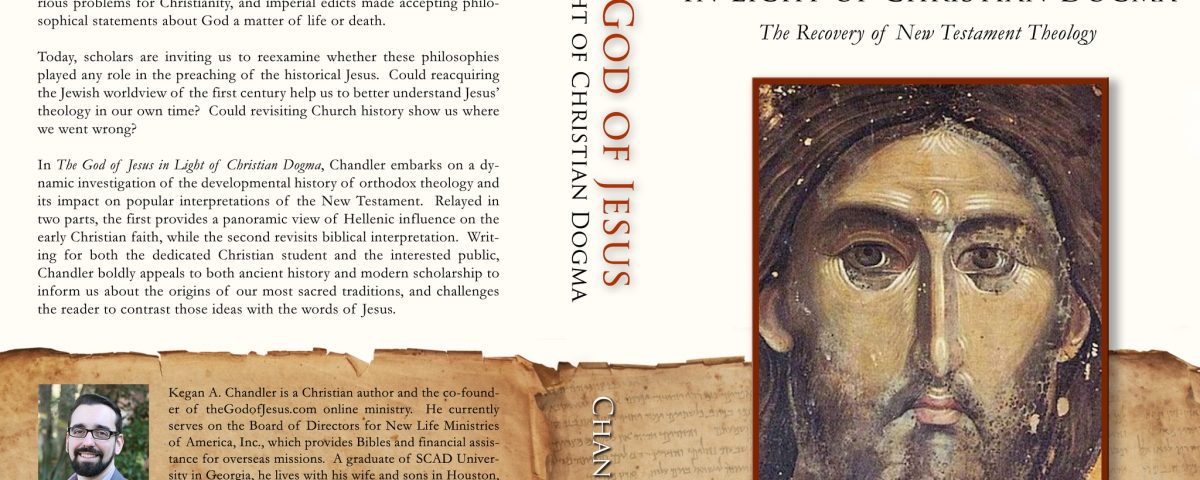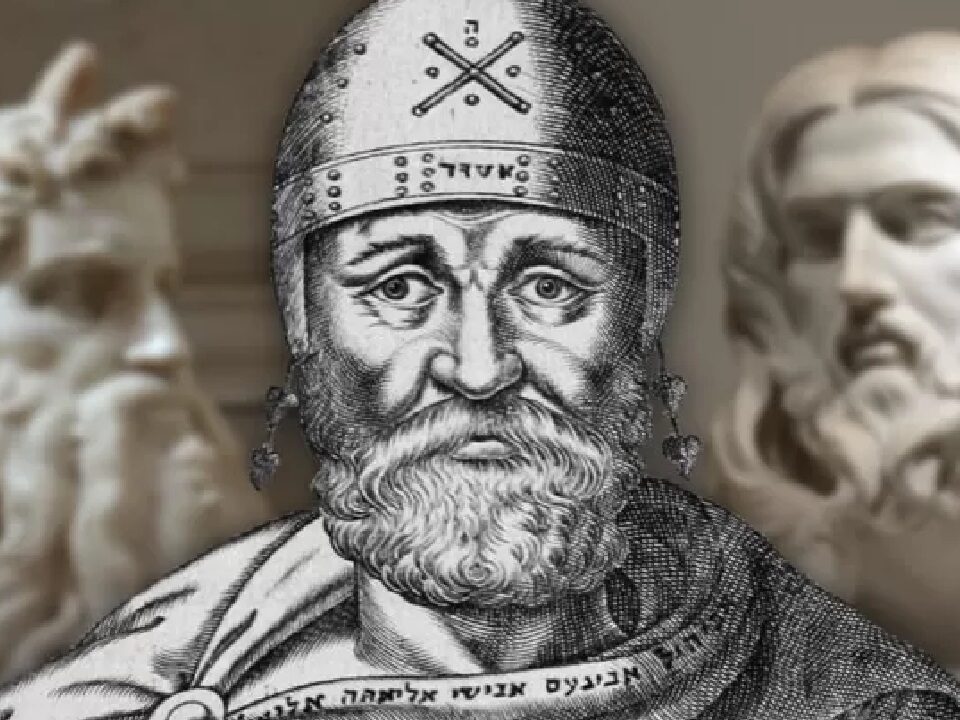
Jesus’ use of the Divine Passive means he is not God!
September 5, 2017
“The root & descendant, the bright morning star.”
October 5, 2017The God of Jesus by Kegan Chandler

Platonic Pre-existence vs. Classical Jewish Pre-existence
It is of foremost importance to determine exactly what one means by “pre-existence.” The concept varies immensely between the people-groups and religions of antiquity, yet for the purposes of this investigation we will demarcate these views into two types: Greek and Jewish. It is fair to say that the Jews believed in the pre-existence of all things, as did the Greeks.[1] Yet their conceptions of pre-existence are as divergent as the cultures and religions which propagated them. While various sects in certain eras saw differing opinions within these delineations, the general views can be summarized in this way: Greek pre-existence is literal and actualized, while Jewish pre-existence is fore-known and conceptualized.[2]
As explored in part one, in the Greek or Platonic worldview, all humans were believed to harbor immortal souls which previously dwelt in a higher, heavenly plane of existence before their birth into our terrestrial sphere. Before the soul’s incarnation as a human being, it existed in a perfect, unchanging world where it knew everything. At the moment of conception, the pre-existing identity was inserted into the baby’s form and his knowledge was suppressed so that he must learn everything all over again. Generally speaking, the literal pre-existence of humans has been rejected by both Jews and Christians. Citations of Zechariah 12:1 are often found in the classical arguments; “…The Lord… formed the spirit of man within him.” Rather than the life pre-existing and only awaiting insertion into a body from the outside, it has been argued by historical Christianity that either God creates each human soul ex-nihilo at the moment of conception,[3] or that each soul is generated off of the parent’s.[4] In fact, belief in the literal pre-existence of humans was ruled heretical in 553 AD by the Second Council of Constantinople. Even modern defenders of the literal pre-existence of Christ affirm that the pre-existence of human souls “was not the product of biblical but Platonic thinking.”[5] Not surprisingly however, the man Jesus Christ is excused from this ruling. Jesus’ conscious life is purported to have actually preceded his birth in Mary by billions of years, even eternity. The Trinitarian therefore esteems the Gospel birth narratives as relaying that a supernatural non-human being entered the young girl’s womb from the outside, indeed that he was “put into the Virgin Mary’s womb,”[6] where he united with an abstract human nature. Of course, the narrative of history has already demonstrated the likelihood that this protracted metaphysical thinking arrived in the mainstream only by the intense intermingling of Greek philosophy with Christianity after the Apostles died. As one scholar reminds us, “the habits of thought which the Gentiles brought into the church are sufficient to explain the corruptions of apostolic doctrine which began in the post-apostolic age.”[7] Nevertheless, Douglas McCready, in his popular book defending the pre-existence of Jesus, asserts that “[Literal] Pre-existence remains the best explanation of the evidence.”[8] We will see soon see whether or not this is really the case.
What we will call the classical Jewish view of pre-existence is much different. The oldest Hebrew conception was not in the strict literal and physical sense of the Greeks, rather it was an existence only in the “foreknowledge” or “foreordination” of God. In this sense, important figures, objects, and symbols first “existed” in heaven with God before being made a reality at their appointed times. All of these things have not literally and physically dwelt in some far removed dimension, but have been personally envisioned by God in his eternal plan for the universe. One scholar explains:
When the Jew said something was ‘predestined,’ he thought of it as already ‘existing’ in a higher sphere of life. The world’s history is thus predestined because it is already, in a sense, preexisting and consequently fixed. This typically Jewish conception of predestination may be distinguished from the Greek idea of preexistence by the predominance of the thought of ‘preexistence’ in the Divine purpose.[9]
In the coming sections we will examine this Hebraic understanding and how it relates to the sayings and theology of Jesus in the New Testament. But first, we must recognize that several irreconcilable conclusions immediately arise alongside the model of literal “Greek” pre-existence as applied to the Jesus texts by Trinitarians. In this chapter we will address only a few of the problems with the literal system before considering the alternative view in the next chapter.
Footnotes:
[1] There is evidence to support the idea that some Hellenizing elements of Second Temple Judaism, being profoundly influenced by Platonic philosophy, had adopted a literal view of the preexistence of every human being. History evidences that this was not the opinion of the dominant Judaism of the first century, nor of the most ancient Hebrews, who conceived of an ideal or contemplated pre-existence for everything within the mind, plan, or Wisdom of God. This Hebrew “Wisdom” of God would be perceived as directly corresponding to the Greek “logos” of God by the later Jewish synthesizers like Philo of Alexandria.
[2] The Dictionary of the Later New Testament confirms this distinction: “the pre-existent state may be described as ideal (existence in the mind or plan of God) or actual (existence alongside and distinct from God)” (Capes, David. “Preexistence,” p. 956).
[3] This concept is known as “Creationism”
[4] Known as “Traducianism” or “Generationism”
[5] McCready, Douglas. He Came Down From Heaven: The Preexistence of Christ and the Christian Faith. Downer’s Grove: IL: IVP Academic, 2005. p. 220.
[6] “When Did Jesus Know He Was the Son of God?” The Bible Study Site. Barnabas Ministries. Accessed 16 December 2014. <http://www.biblestudy.org/question/when-did-jesus-know-he-was-god.html>.
[7] Purves, G.T. The Testimony of Justin Martyr to Early Christianity. New York: Randolph and Co., 1889, p. 167.
[8] Ibid., McCready, p. 316.
[9] Dewick. E.C. Primitive Christian Eschatology, The Hulsean Prize Essay for 1908, Cambridge University Press, 1912, pp. 253, 254. (emphasis added)

